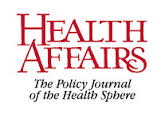State Issues Medicaid Budget Summary
The Pennsylvania Department of Public Welfare’s Office of Medical Assistance Programs has released a summary and overview of its recently passed FY 2014 Medicaid budget.
Find the overview document here .
.
The Pennsylvania Department of Public Welfare’s Office of Medical Assistance Programs has released a summary and overview of its recently passed FY 2014 Medicaid budget.
Find the overview document here .
.
The Medical Assistance Advisory Committee that works with the Pennsylvania’s Department of Public Welfare met recently in Harrisburg.
Among the subjects discussed during the meeting were the state’s recently passed budget, the Medical Assistance program, the prospects for Medicaid expansion, and more.
Read the official state file note summarizing the meeting here .
.
All Pennsylvania safety-net hospitals have them: a relatively small number of Medicaid patients who are constantly in need of care.
Five percent of all Medicaid beneficiaries account for more than half of all Medicaid expenditures. The challenges such patients pose are legitimate: many have multiple chronic conditions.
How best to serve these patients? The Center for Medicaid and CHIP Services has been looking into this problem and the Center for Medicare and Medicaid Innovation and the Robert Wood Johnson Foundation have been underwriting demonstration programs designed to find better ways to care for these patients.
Read more about the problem and these models, and find a direct link to a Center for Medicaid and CHIP Services advisory bulletin on the subject, here on the Fierce Healthcare web site.
on the Fierce Healthcare web site.
More than 9500 doctors stopped accepting Medicare in 2012 – nearly three times as many who dropped out of the program just three years earlier.
In addition, the proportion of family doctors who accepted new Medicare patients that year fell from 83 percent in 2010 to 81 percent.
While most doctors who leave Medicare cite what they consider to be its inadequate payment rates, some do not want to adopt electronic health records and others feel that they can fare better financially without the additional staff needed to process Medicare claims.
While some Medicare patients choose to pay out of their own pocket rather than switch doctors, that is seldom an option for most of the low-income patients served by Pennsylvania’s safety-net hospitals.
Read more about the challenges Medicare faces in retaining enough doctors to serve the nation’s aging population and why more doctors are dropping out of the program in this Wall Street Journal article .
.
Twenty-one states have decided not to expand their Medicaid programs under the Affordable Care Act and another six states remain undecided.
How will these decisions affect these states and their residents? How many people who might have become eligible for Medicaid will remain uninsured? How much federal Medicaid revenue will these states forgo? How will these decisions affect hospitals’ uncompensated care costs? How might payments to hospitals be affected?
Pennsylvania is one of the six states where Medicaid expansion is still being considered, and the report includes specific projections for the commonwealth. The Safety-Net Association of Pennsylvania (SNAP) supports Medicaid expansion in the state.
A new study from the Urban Institute attempts to quantify the answers to these and other questions. Find “The Cost of Not Expanding Medicaid” here , on the web site of the Kaiser Commission on Medicaid and the Uninsured.
, on the web site of the Kaiser Commission on Medicaid and the Uninsured.
The Safety-Net Association of Pennsylvania has submitted a formal comment letter to the state’s Department of Public Welfare in response to the department’s expressed interest in establishing an observation rate in the state’s Medical Assistance fee-for-service program.
DPW expressed this interest in a June 29 Pennsylvania Bulletin notice.
SNAP supports the creation of an observation rate, and in its letter it outlines how it believes DPW should go about developing a rate that is fair to hospitals.
Safety-net hospitals have a special interest in this issue because observation rate candidates enter hospitals through their emergency rooms and safety-net hospitals typically have among the busiest emergency rooms in the communities they serve.
Read SNAP’s observation rate comment letter here .
.
 A bill that would delay implementation of Medicaid disproportionate share (Medicaid DSH) and Medicare DSH payment cuts for two years now has 46 co-sponsors in the U.S. House of Representatives.
A bill that would delay implementation of Medicaid disproportionate share (Medicaid DSH) and Medicare DSH payment cuts for two years now has 46 co-sponsors in the U.S. House of Representatives.
H.R. 1920, the DSH Reduction Relief Act of 2103, would delay for two years the DSH cuts mandated by the Affordable Care Act.
The rationale underlying the proposal is that between some states choosing not to expand their Medicaid programs as the reform law envisioned and the delay in imposing the mandate for businesses to help their employees with health insurance, the expected rise in the rate of insurance will be slower than expected and hospitals that care for especially large numbers of low-income patients will have a greater need for DSH revenue than originally anticipated.
Because they serve so many more low-income patients than the typical acute-care hospital and Pennsylvania is not among the states planning to expand eligibility for Medicaid, the state’s safety-net hospitals are especially interested in this issue and have conveyed their support for the bill both to Congress and to the administration.
Read more about the proposed DSH delay bill and its prospects for passage in this CQ HealthBeat article presented by the Commonwealth Fund.
Even when they have health insurance, many low-income patients prefer receiving care in hospital emergency rooms rather than private physician offices or clinics.
According to a new study published in the journal Health Affairs, low-income patients cite convenience, cost, and quality as reasons for their preference.
These findings emerge at a time when government and insurers are working hard to find ways to reduce overuse of costly hospital emergency room services.
Emergency room overuse is especially a problem for many of Pennsylvania’s safety-net hospitals, which often have among the busiest emergency facilities in the regions they serve.
Read more about the new study in this report from the Robert Wood Johnson Foundation and find the study itself here, on the Health Affairs web site.
SNAP has asked Pennsylvania’s congressional delegation in Washington to support a bill before the House that would delay planned cuts in Medicare disproportionate share hospital payments (Medicare DSH) and Medicaid DSH for two years.
H.R. 1920, the DSH Reduction Relief Act of 2013, would delay cuts mandated by the Affordable Care Act.
SNAP’s letter to the delegation notes that
These DSH cuts are scheduled to begin…before the Affordable Care Act’s Medicaid and insurance expansion provisions can even begin to have an effect; as you know, moreover, there currently is no plan to expand Medicaid eligibility in Pennsylvania. In addition, the administration recently announced a one-year delay in the reform law’s employer health insurance mandate. Together, Medicare DSH and Medicaid DSH cuts will amount to millions of dollars worth of reductions in payments that safety-net hospitals like ours need to serve their communities, and they would be coming at a time of great ambiguity as implementation of this aspect of the Affordable Care Act gets under way.
Read SNAP’s letter to the PA congressional delegation here .
.